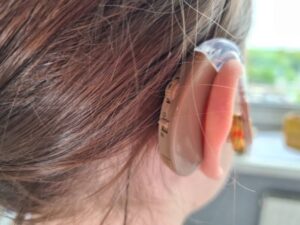Auditory processing disorder is a condition that affects how your brain receives and interprets sound. It can make it hard to understand what people are saying and cause problems with learning, communication and reading.
Auditory processing disorders can be diagnosed by an audiologist from APD Adelaide. The audiologist will perform tests to check your hearing and brain functions.
Symptoms
 If you or your child has trouble following directions, misses important information in a noisy environment, has difficulty remembering phone numbers or song lyrics or has problems with reading and spelling, this could be a sign of auditory processing disorder. APD is a common disorder that affects kids who have normal hearing and is usually not caused by underlying conditions such as autism, ADD/ADHD or speech or language disorders.
If you or your child has trouble following directions, misses important information in a noisy environment, has difficulty remembering phone numbers or song lyrics or has problems with reading and spelling, this could be a sign of auditory processing disorder. APD is a common disorder that affects kids who have normal hearing and is usually not caused by underlying conditions such as autism, ADD/ADHD or speech or language disorders.
When sound waves reach the ear, they cause the eardrum to vibrate and send signals through the middle ear bones to the inner ear, where small hair cells turn them into electrical impulses. The brain then interprets these signals as the sounds we recognise. People with APD have a problem with this last step of the process.
APD can be a silent condition and often goes undiagnosed. It’s more noticeable in children than adults. It is often confused with other states that also impact learning or attention, such as autism spectrum disorder, ADD/ADHD and speech and language disorders.
Children with APD often ask for people to repeat themselves, have difficulty filtering out background noise and struggle with listening in reverberant or echoing environments. They may have difficulty with auditory figure-ground discrimination (listening to a word against a background noise) and have trouble with auditory memory (listening to something once and then being unable to recall it). They can also have difficulties with auditory sequencing (listening to a string of words and then being unable to recall them in order). They may also need more time than others to process information heard.
Diagnosis
Auditory processing disorder is not a hearing loss but a problem with how the brain receives, organises, and makes sense of sound. It may occur in children and adults of any age and can impact the ability to develop language, succeed academically, or communicate effectively. It can be difficult to diagnose, as it’s not obvious to outside observers, and symptoms often overlap with those of other conditions and disorders, such as attention deficit hyperactivity disorder (ADHD or ADD), learning disabilities, and speech-language impairment.
To diagnose auditory processing disorder, a qualified audiologist from APD Adelaide performs a series of tests in a sound-treated room that assesses the neural pathways from the ear to the brain and compares results against age-based normative data. It is a very individualised process, and peripheral hearing loss and coexisting conditions must be ruled out before conducting an assessment.
The causes of auditory processing disorder are not fully understood. Still, they are thought to result from a developmental delay, a neurological or neurodevelopmental condition, or an abnormality with “wiring” that has a genetic component. It is also possible that frequent ear infections, an extended period with excessive fever, or head trauma can have lasting impacts on the brain and lead to problems with listening. Symptoms of APD can also be exacerbated by environmental factors such as noise and reverberation.
Treatment
The ability to distinguish distinct speech sounds and listen for short words and phrases may be impaired for individuals with auditory processing disorder. They can miss important information in conversations and classroom instruction because they cannot instantly interpret what is said. It is common for them to struggle in crowded environments, where the sounds of other voices may distract them from hearing what is being said.
Although it can look like hearing loss, individuals with APD do not have a noticeable difference in their peripheral hearing when tested by an audiologist. They have trouble understanding conversations that are going on around them, following directions and listening to music or lectures. They also struggle to distinguish consonant sounds in everyday speech, such as “da” and “ba.”
The exact cause of auditory processing disorder is not fully understood, but it is believed to be linked to issues related to birth, such as premature birth or low birth weight. It can also be caused by a history of repeated ear infections, which can muffle sounds and lead to an inability to recognise them. In some cases, traumatic brain injury can have long-lasting effects on the auditory system.
Several APD Adelaide treatment options for auditory processing disorder can help manage symptoms. These include environmental modifications (visual cues or written instructions to complement verbal classroom instruction), auditory training and compensatory strategies such as lip reading, avoiding learning or working environments with excessive background noise, and incorporating assistive technology and coping techniques into the daily routine.
